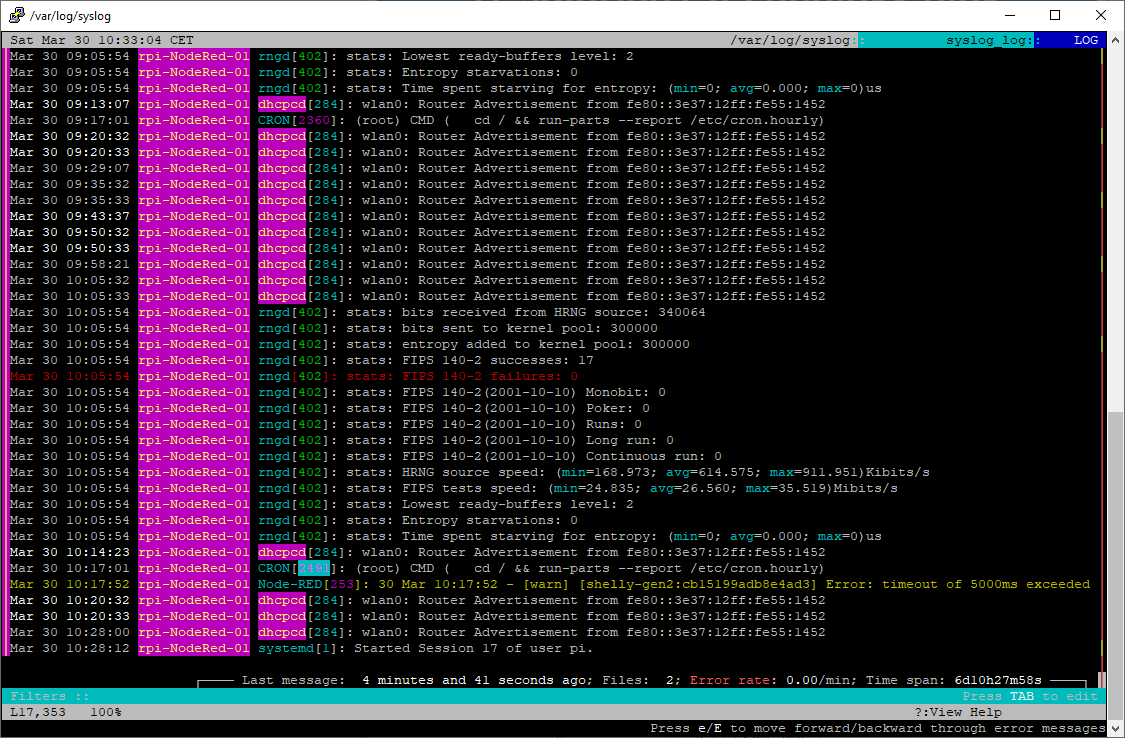
Archive for August 5th, 2024
Krankenhaus Agatharied – endlich wieder online
Montag, August 5th, 2024New York Stock Exchange – opening bell rings to start the day’s trading
Montag, August 5th, 2024Montag, August 5th, 2024
Schon gewusst? In Q2 hatten wir 190 gemeldete #Störungen. Beim Update unserer Seite #KRITIS in Zahlen zeigen wir euch neue Daten zu Registrierungen, Nachweisen und gemeldeten Störungen von KRITIS aus Q2. Mehr dazu gibt es hier: ️ https://t.co/twiSvN3kf3
— BSI (@BSI_Bund) August 5, 2024
Linux command ’lnav‘ – the Log File Navigator (lnav) is an advanced log file viewer for the console so if you have a bunch of log files that you need to look through to find issues
Montag, August 5th, 2024Linux command ’lnav‘ – is an advanced log file viewer for the terminal it provides an easy-to-use interface for monitoring and analyzing your log files with little to no setup. Simply point lnav at your log files and it will automatically detect the Log Formats index their contents and display a combined view of all log messages andou can navigate through your logs using a variety of hotkeys
root@rpi-NodeRed-01:~#
root@rpi-NodeRed-01:~# apt-get install lnav
Reading package lists… Done
Building dependency tree… Done
Reading state information… Done
lnav is already the newest version (0.9.0-1).
0 upgraded, 0 newly installed, 0 to remove and 0 not upgraded.
root@rpi-NodeRed-01:~#
root@rpi-NodeRed-01:~# lnav -V
lnav 0.9.0
root@rpi-NodeRed-01:~#
Some usefull hotkeys
e / E : jump to next/previous ERROR
w / W: jump to next/previous WARNING
d / D : forward / backward 24 hours
0 / shift 0 : next / previous day
ctrl-r : reset all filters and highlights
i : show a histogram with number of errors per day :exclamation:
p / shift p : show / stop showing JSON messages in a pretty way :exclamation:
/ : search a string of regular expression
g / G : go to top or bottom of the file
root@rpi-NodeRed-01:~# lnav

Log analysis in lnav can be done using the SQLite interface
Log messages can be accessed via virtual tables that are created for each file format and the tables have the same name as the log format and each message is its own row in the table a simple query to perform on an Apache access log might be to get the average and maximum number of bytes returned by the server grouped by IP@